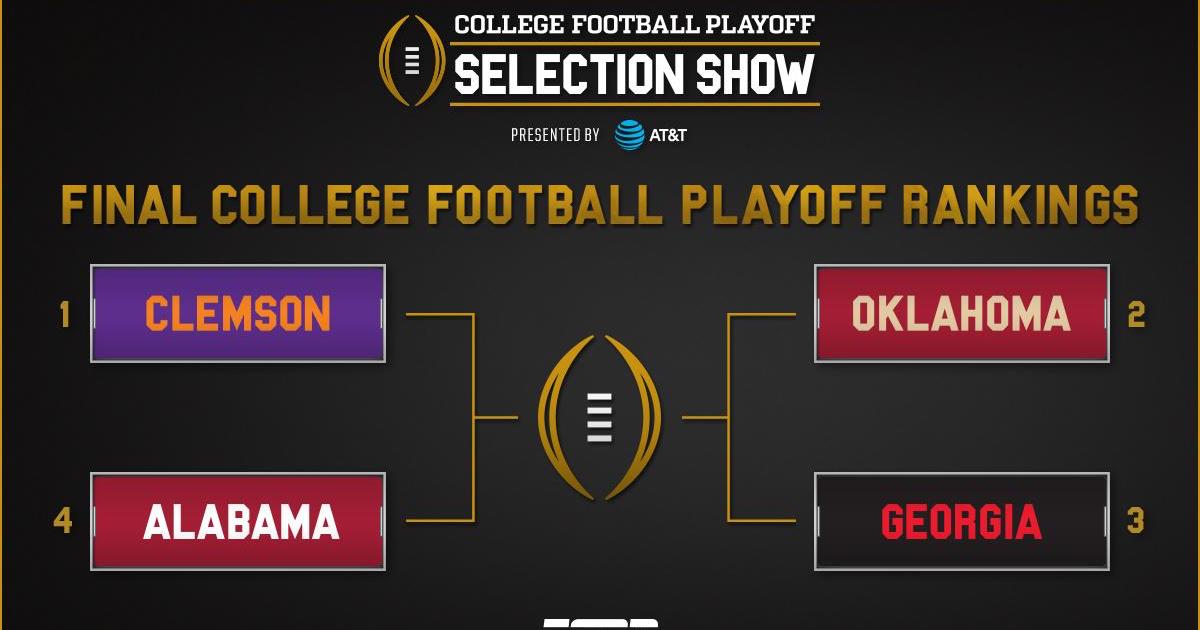A Necessary Change for College Football
Posted by Front Porch Football on Wednesday, January 10, 2018 · Leave a Comment

The idea that “you can’t please everyone” certainly applies to the College Football Playoff selection committee’s yearly decision of which four teams they declare worthy of a playoff spot. As shown in these past two years, the committee clearly selects teams based on who has the most talent rather than the best record. From upsetting Ohio State in the regular season to beating Wisconsin in the Big Ten championship, the Nittany Lions fell short of a playoff bid in 2016. This made Penn State fans furious after the committee selected both Ohio State and Washington over them. The following season, the committee chose Alabama over Ohio State to compete in this year’s playoffs. Alabama lost to Auburn in the regular season and didn’t even compete in their conference championship. However, the committee still selected them over the Buckeyes who beat Penn State and Michigan State in the regular season, and then went on to win the Big Ten Championship against undefeated Wisconsin. These bold decisions have caused Big Ten fans and many other skeptics to rethink the way the selection occurs.

Image from USA Today
If the committee extended the playoffs from four teams to eight teams, the month long process would reveal the most deserving team and ultimate champion free of bias and criticism.

Image from ESPN
Whether it is the Big Ten, SEC, or Pac 12, extending the playoffs would allow the conference champions to actually count for something. In the past two years, the committee completely disregarded the champions of the Big Ten. It seems that the Big Ten is being punished for being the most competitive conference in college football. For example, this bowl season the SEC went 4-5 with embarrassing losses to the likes of Wake Forest and UCF. While the Big Ten went 7-1 with impressive wins against Top 25 opponents. Even though the Big Ten was the most competitive they were not represented in the playoff this year. This created many concerns about how fair the process is not only to devoted fans and players, but also to conference executives and coaches. A system of eight teams rather than four gives the committee more room for error and less power. It would also force them to recognize all teams capable of winning the championship, not just the teams with strong reputations or a winning record. Alabama’s reputation could certainly have allowed them to make the playoff this year.

Image from Post and Courier
The past two years the top teams have seriously competed against their opponents. They have proved their ability to perform at crucial times and to score under high stakes. This made the committee’s decision extremely difficult. Yet, with a changed system, the committee’s choices would no longer have a large effect on the outcome of the postseason games. With eight teams in the playoff the committee does not indirectly pick the champion by eliminating the competition.
 Kathryn Tague is a sophomore at Radnor High School and lives in Villanova, Pa. She lives with her parents, brother and dog named Koda. Kathryn plays basketball and lacrosse, and is an avid Penn State Football fan.
Kathryn Tague is a sophomore at Radnor High School and lives in Villanova, Pa. She lives with her parents, brother and dog named Koda. Kathryn plays basketball and lacrosse, and is an avid Penn State Football fan.

 Front Porch Football
Front Porch Football





